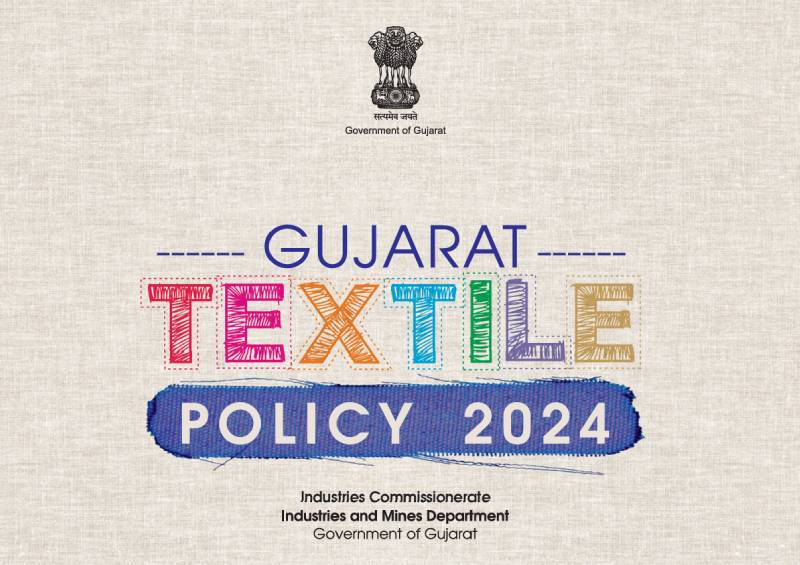Gujarat Chief Minister Bhupendra Patel on Tuesday launched the much-anticipated Textile Policy 2024, a strategic initiative designed to propel the state into a global leader in the technical textile sector. The policy is projected to attract a substantial investment of ₹30,000 crore, further solidifying Gujarat’s position as a textile manufacturing powerhouse.
The new policy is the culmination of a comprehensive analysis of the entire textile value chain. Recognizing the immense potential of the garment, apparel, and technical textile segments, the government has prioritised these areas for focused development. By streamlining processes and offering lucrative incentives, the policy aims to create a conducive environment for businesses to thrive and innovate.
Key Highlights of the New Textile Policy 2024:
- Capital Subsidy: Textile production units in Gujarat will be eligible for a generous capital subsidy ranging from 10% to 35%, depending on the nature of the operation.
- Interest Subsidy: To ease the financial burden on businesses, the government will provide interest subsidies of 5% to 7% per annum for a period of 5 to 8 years.
- Power Tariff Subsidy: Textile units will receive a power tariff subsidy of ₹1 per unit for a period of 5 years, significantly reducing operational costs.
- Payroll Assistance: The policy offers payroll assistance of ₹2,000 to ₹5,000 per worker per month for a period of 5 years, supporting employment generation and worker welfare.
- Incentives for Labor-Intensive Units: Labor-intensive textile units will benefit from increased capital subsidies of 25% to 35% and extended interest subsidies of up to 7% per annum for 8 years. Additionally, these units will receive extended payroll assistance for a period of 10 years.
By introducing these comprehensive incentives, the Gujarat government is aiming to attract both domestic and international investors to establish manufacturing facilities in the state. This strategic move is expected to create a significant number of job opportunities, particularly in rural and semi-urban areas, contributing to economic growth and social development.
The legacy of the previous textile policies, initiated by former Chief Minister Narendra Modi, has laid a strong foundation for the textile industry in Gujarat. The 2012 textile policy, for instance, successfully attracted investments of ₹35,000 crore and created 2.5 lakh jobs. The new policy builds upon this success and aims to further elevate the state’s textile industry to global prominence.
As Gujarat embarks on this ambitious journey, the Textile Policy 2024 is poised to reshape the state’s industrial landscape and position it as a global leader in the textile sector.

